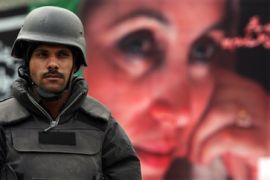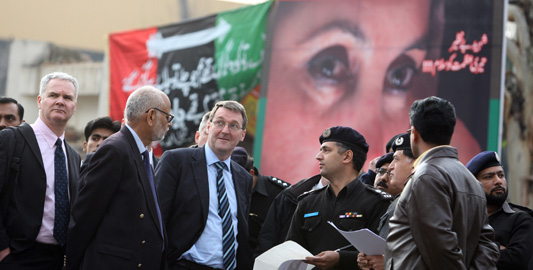 |
Scotland Yard sent a team to Rawalpindi in January 2008 to investigate the
killing of Benazir Bhutto, the former prime minister [GETTY] |
Senior Pakistani officials and political pundits have expressed concern over the newly elected government’s decision to request a UN-led inquiry into the death of Benazir Bhutto, the former prime minister and leader of the Pakistan People’s Party (PPP).
Bhutto was killed during a rally in Rawalpindi on December 27 last year, creating a wave of support in the country that helped her party win the most seats in February’s parliamentary election.
Mushahid Hussain, secretary-general of the Pakistan Muslim League-Q (PML-Q), a party which firmly supports Pervez Musharraf, the current president, told Al Jazeera: “[The investigation] will have adverse ramifications for Pakistan’s national security since it will open the door to foreign intervention in our domestic affairs that may extend, eventually, to sensitive domains like the nuclear programme.”
“It will also send a message that the government of Pakistan has no confidence in its own security institutions, which are under its control. Pakistan’s sovereignty and security could both be at stake.”
Resignations in protest
Resistance to the idea of a foreign-led inquiry may be gaining momentum. Last week two senior members of the government resigned. Pakistani media suggested that the resignations were in protest against the idea of a UN investigation.
Tariq Fatemi, a former Pakistani ambassador to the US, Jordan and the EU, says a UN commission to investigate Bhutto’s killing would be compromising sovereignty and independence and interfering in a “purely domestic” affair.
“The commission could be lethal. The UN will feel it is able to come and investigate issues such as differences within the provinces or non-conventional weapons,” Fatemi told Al Jazeera.
“The UN will say that you involved us for domestic affairs so you will have no issue with us investigating A, B, C. Up until now Pakistan has jealously guarded its public sovereignty.”
Pakistan’s nuclear programme is one contentious issue of security and sovereignty that critics of the UN probe fear could me compromised.
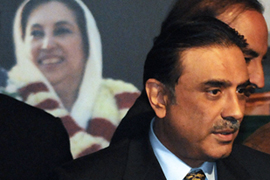 |
Asif Ali Zardari, Bhutto’s widower, and the PPP
want a UN probe into her killing [AFP] |
Arif Mohammed, a former senior Pakistani member of the UN Secretariat, says if a UN inquiry gets the green light, investigations could spiral out of control, leading to sanctions, a full economic blockade and isolation.
“The proposed Benazir Bhutto Commission is far more useful for the US, can provide easy and direct linkages to nuclear proliferation issues, and pave the way for IAEA (International Atomic Energy Agency) inspections in Pakistan.”
Critics of the PPP proposal fear that once UN investigators delve into possible motives behind Bhutto’s assassination, a direct link could be made with Abdul Qadeer Khan, the architect of Pakistan’s nuclear programme.
Just before her death Bhutto said she would be willing to allow UN inspectors to question Khan.
Khan, who was involved in sharing nuclear secrets with Libya, Iran and North Korea, has remained under house arrest in Islamabad. Neither Khan nor anyone linked to the case has faced charges in Pakistan.
“The US has the ability to steer any UN enquiry in any direction, we must not forget the Iraq commission,” Mohammed said.
“The IAEA could take control of all installations with firm possibility of de-nuclearisation.
“If America uses the United Nations as an excuse to further delve into Pakistan’s secrets, the country’s sovereignty will be at stake, leaving an open door for ongoing investigations.”
Pre-emptive strikes
Mohammed also fears a UN commission could lead to US involvement – and possible pre-emptive strikes – in Pakistan’s Federally Administered Tribal regions, with an international force deployed to investigate the military’s involvement in the south western province of Baluchistan.
“If the UN commission is set up, it could lead to a committee set up to ‘protect’ the Baluch minority similar to Darfur, and finally Pakistan could be put on the Human Rights Watch list under any premise and unending investigative demands for years to come,” he told Al Jazeera.
“There needs to be more focus, more debate on the consequences of a UN investigation in the country,” he cautioned.
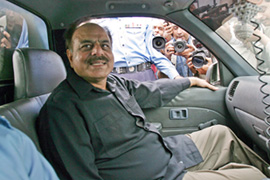 |
Gul, the former intelligence chief, says Pakistan
should handle the Bhutto case itself [AFP] |
Hamid Gul, a retired military general and former director of Pakistan’s secret services, believes Mohammed’s fears are legitimate.
“It is all a real possibility,” he said.
“America is already insisting on their right to pre-emptive strikes. We have heard comments from [John] Negroponte. The statements are very eminent and threatening. If this happens, then I am afraid that the Pakistani people will rebel against the government and its policies towards America.
Gul says the US has to decide whether it will make Pakistan a hostile camp like Iran or press Pakistan into friendly service into the “war against terrorism”.
“If Bush doesn’t shift the paradigm, then Pakistan will probably pull out of the war against terrorism,” he says.
Gul thinks Pakistan should handle the Bhutto murder case itself.
“We have very good investigators in Pakistan and we should use their service if they really are interested in the truth,” he said.
Distrusting Musharraf
But the newly elected government said one of the principal reasons for resorting to an international probe is that it does not trust a previous investigation launched by the Musharraf government.
In January, a PPP committee, said: “The main reason we are approaching the United Nations is the distrust and lack of credibility of the government, and we will prove it”.
The government says it has been suspicious of the Musharraf government’s motives in blaming Baitullah Mehsud, a northwest frontier-based Pakistani Taliban leader, for Bhutto’s murder.
Pakistan last month released Sufi Mohammed, leader of the Tehreek-e-Taliban and a Mehsud ally, who had previously recruited thousands of people to fight against the US-led invasion of Afghanistan.
The deal reached with Mohammed was part of the new government’s efforts to engage in dialogue with armed groups fighting against the state.
Al Jazeera approached senior PPP officials but they were unavailable for comment.
Nuclear installations safe
Raza Rabbani, a senior PPP politician and leader of the house in the senate, has dismissed the suggestion that UN-led investigation would pose a threat to the national interests.
Pakistani media have quoted Rabbani as saying that the country’s nuclear installations would not be open to foreign investigators and Abdul Qadeer Khan will not be subjected to questioning.
He said only those aspects connected to the Bhutto assassination, would be investigated.
Rabbani, who is a practising lawyer, believes that the people campaigning against a UN investigation do not want to expose what he calls the conspiracy behind the murder.
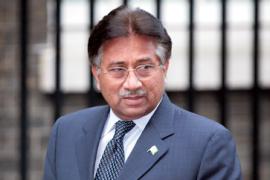 |
The PPP says it distrusts Musharraf’s
investigation into Bhutto’s killing [GETTY] |
Tanvir Ahmed Khan, a former foreign secretary, also believes a UN-administered Bhutto murder investigation, possibly modelled after the current Rafik al-Hariri probe, is the ‘will of the people of Pakistan’.
He says Pakistan should prepare to remove any obstacles and garner as much support for an international probe as possible.
Critics nevertheless believe that a UN investigation along the lines of the Rafiq al-Hariri murder inquiry, is not applicable to Pakistan.
Al-Hariri, a former Lebanese prime minister, was assassinated in February 2005. A UN-led probe was demanded by Lebanon after speculation mounted over Syria’s involvement in his death.
In Bhutto’s case, no fingers have been pointed as yet outside of Pakistan.
“When no second country is deemed to be involved, then there shouldn’t even be a commission,” Gul says.
Fatemi, the former Pakistan diplomat, told Al Jazeera: “We still have no evidence of foreign interference into her death. Pakistan’s foreign office, in consultation with experts at the UN, concluded that while the call of the UN investigation may service the purpose of public concerns, the consequences could be detrimental.”
The exact mandate and the scope of terms of reference for the proposed commission are yet to be determined but will likely stir further debate in Pakistani politics once they are made public.
